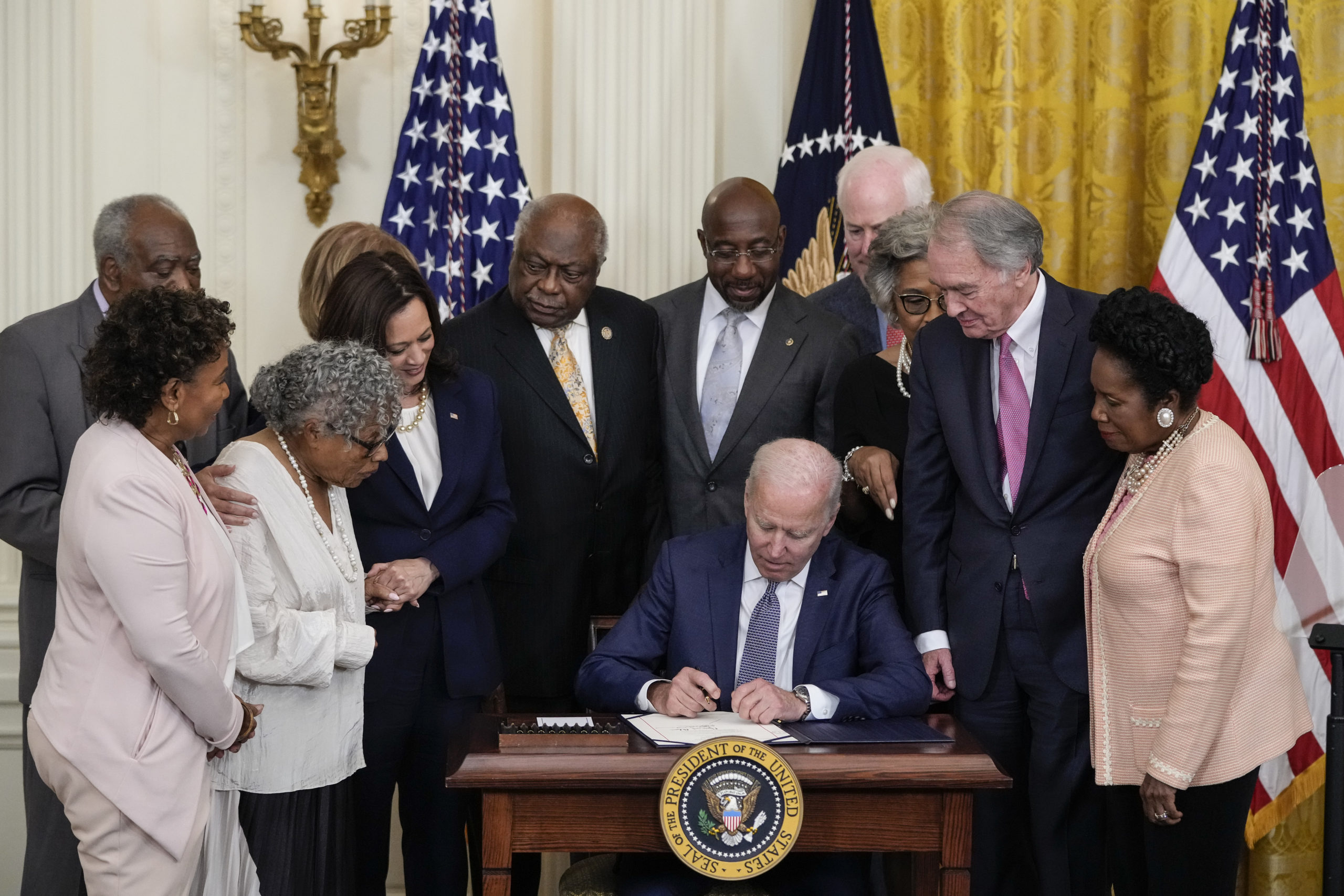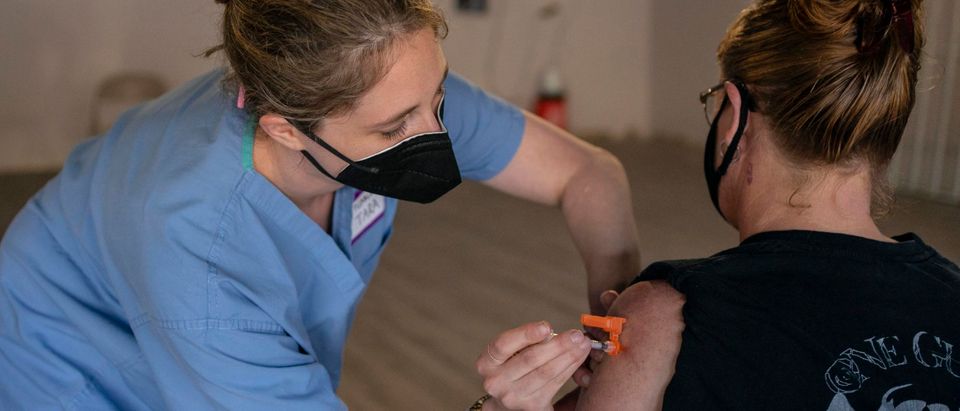Vaccine advisers at the Centers for Disease Control and Prevention (CDC) rescheduled an upcoming meeting to discuss the COVID-19 vaccine because of America’s newly-minted Juneteenth holiday.
The CDC’s Advisory Committee on Immunization Practices meeting was supposed to take place Friday, according to CNN. Advisers were set to discuss the possibility of booster shots being needed and whether cases of myocarditis in young men and boys are connected to the vaccine, CNN added.
President Joe Biden signed the Juneteenth National Independence Day Act into law Thursday afternoon, marking America’s newest holiday. Juneteenth, which is celebrated June 19, honors the official end of slavery in Confederate states. (RELATED: Rare Heart Inflammation Following COVID-19 Vaccination Sparks Emergency CDC Meeting)
Since Juneteenth falls on Saturday for 2021, the holiday is celebrated Friday, according to CNN. The CDC cited the new federal holiday as reason for rescheduling the meeting.

U.S. President Joe Biden signs the Juneteenth National Independence Day Act into law in the East Room of the White House on June 17, 2021 in Washington, DC. (Drew Angerer/Getty Images)
“The June 18, 2021 COVID-19 meeting is being rescheduled due to the observation of the Juneteenth National Independence Day holiday. The discussion will be rescheduled to be included as part of the June 23-25 ACIP meeting,” the CDC said according to CNN.
Myocarditis is a rare heart inflammation and the CDC noted that there’s been “increased reports” since April 2021. The CDC said on May 27 that they “are actively monitoring these reports, by reviewing data and medical records, to learn more about what happened and to see if there is any relationship to COVID-19 vaccination.”
Reported cases have largely occurred “in male adolescents and young adults age 16 years or older,” according to the CDC. The cases also occur more often upon receiving the second dose of the COVID-19 vaccine and are spotted “within several days after” receiving the vaccine.


